Your startup’s website, mobile app, SaaS product, or ‘downloads’ page is the center of your digital marketing ecosystem. You want all the buzz, all the hype, and all the eyeballs it can attract.
SEO for your startup demands insightful planning, a healthy dose of aggression, and utmost focus on the business outcomes of your marketing. With all this in mind, I’ve put together the 5 most important SEO tips that any startup can’t miss out on.
1- Make Sure Your Webpages Load Super Quickly
Here’s a scary reality – 53% website visitors abandon the website if it doesn’t load in less than 3 seconds! No wonder, Google believes that page loading speed is a crucial component of the user experience of a web user.
There’s a lot you can do to improve your websites’ page loading speeds.
- Optimize your website’s page loading speed by using methods such as image compression, AMP (Accelerated Mobile Pages), reducing redirects, minifying the CSS, and using a content distribution network.
- If you’re hosting your website on shared hosting, you may want to move to dedicated hosting for better loading speeds.
- Take the help of CDN because they have a vast network of data centers that minimizes the time taken by the server to return the information requested by the browser.
- Plugins like WP Total Cache (for WordPress) help in setting up caching to enable quicker website loading.
- Set up a website audit to find 301 redirects; these pages actually take longer than usual to bring the desired content to the user’s screens, and hence deserve priority optimization efforts.
- Look for opportunities where you can replace PHP with static HTML
- Invariably, you don’t need to load your images in their highest resolution, so consider where you can compress images.
2- Use Free and Paid Tools for SEO
Because you’re starting up, every marketing dollar counts. And money saved is money earned. As you scale up your SEO, you’d see costs multiply. You can, however, save hundreds of dollars per month by using effective free and freemium SEO tools. Here are some of the indispensable ones.
Don’t pay any SEO agency for speed audits and strategy, because Google’s free tool does it for you better than anyone else.
Just open the tool, enter your website, and let the tool calculate a score for its desktop and mobile UX.
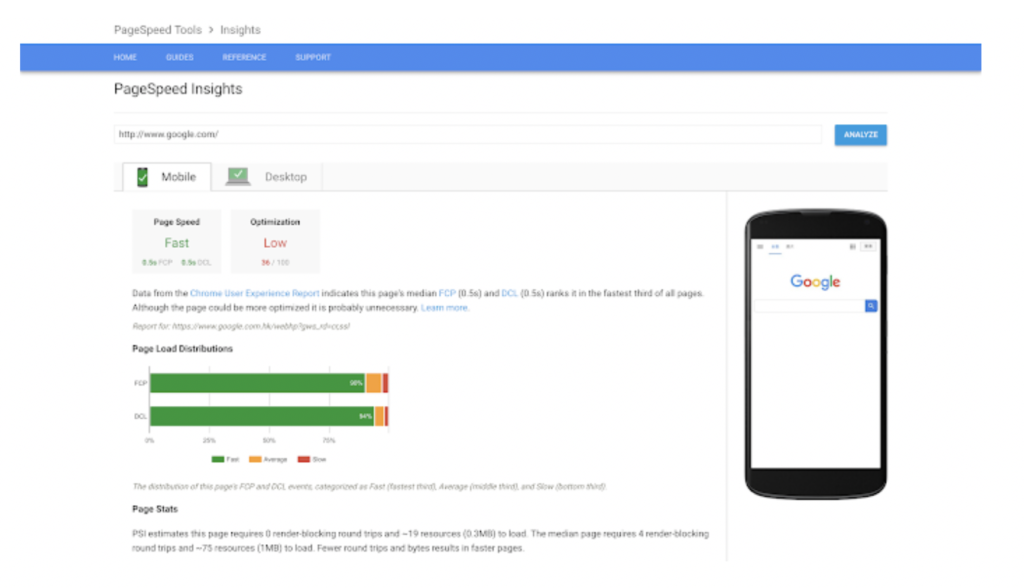
The best part of the tool is that it gives you real action points to optimize and improve your mobile and desktop website’s performance metrics. Page speed is a critical ranking factor for Google, ever since its algorithm updates done in 2018. Start your website’s speed optimization with this free tool.
Another free tool from Google, Mobile-Friendly Test quickly analyzes the mobile friendliness of your website. It also tells you all the actions you can take to make your website more mobile-friendly.

Considering that mobile web searches have overtaken desktop browser searches in volume, it’s crucial that your website delivers great user experiences over mobile devices. The factors it considers are – legibility of font, placement of pop ups, content element sizes, page loading speed, etc.
Finteza is an advanced webmaster analytics tools to assist in your marketing efforts. Here are some of the important features offered by Finteza:
- It automatically detects bad traffic so that you are able to identify spammers and block them.
- You can track conversions on the basis of events, pages or campaign source.
- The comprehensive page analytics report compares the performance of various pages.
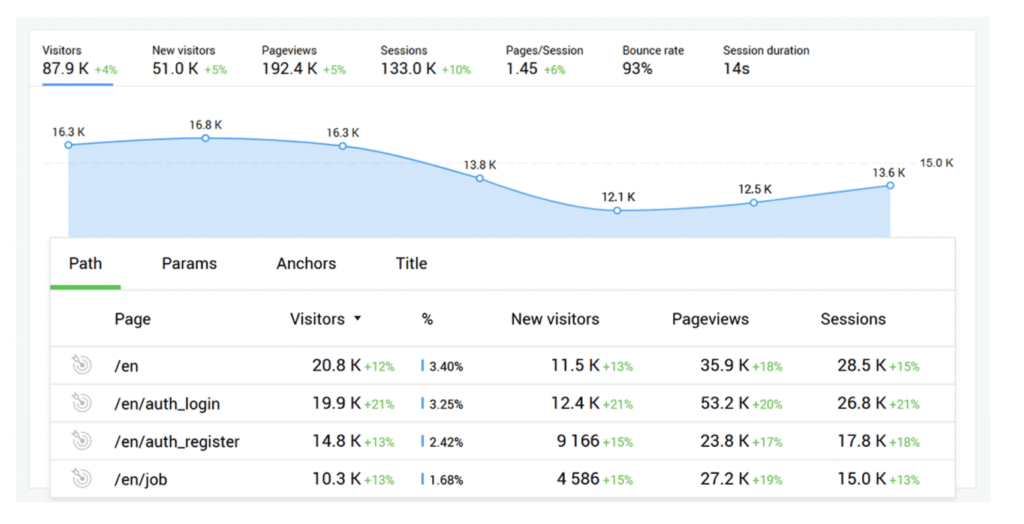
- The built-in advertising engine assists you in all your sales strategies.
Backlinks are the backbone of your startup’s SEO strategy; use this freemium tool to track backlinks, monitor them, and discover backlinks for your competitors.
The tool gives you a report of the top 100 backlinks for the URL you submit. The AHREFS dashboard also gives you other useful information, such as domain rating score, total number of backlinks, number of linking domains, and a lot more.
Here’s how the report looks like:
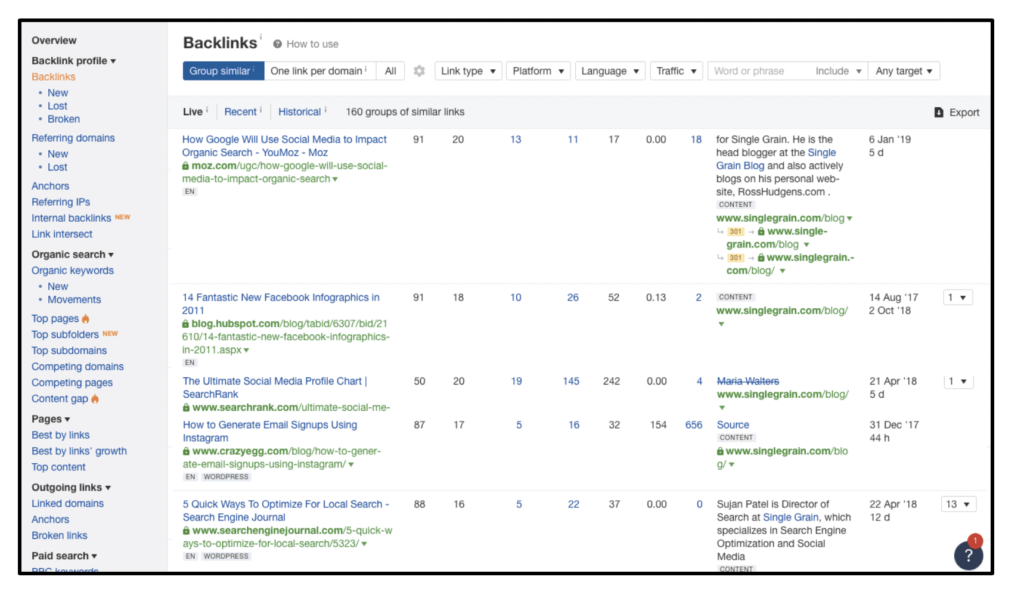
Of course, there are others, such as SEMRush’s freemium tools, keywordtool.io, Answerthepublic.com, and Moz Link Explorer (another freemium offering).
3- Be aggressive with your backlinks strategy
Backlinks are, arguably, the most important ranking factor. Your startup website can save years of waiting before it emerges on SERP#1 for target keywords, only if you can secure enough backlinks to your content, quickly.
Here’s a 3-step technique:
- Skyscraper content technique: Find a high performing website that ranks for your target keyword, and then build a page that’s better. If your competitor, for instance, is listing 25 tricks to get a discounted travel deals, go ahead and do 30, and test each of them, and show your test evidence. Apply this principle of “better” and “more valuable” to any existing top-ranking page and build your own version.
- Competitor Backlinks Analysis: Use a backlinks tracking tool to build a list of all websites that have linked to the competitor’s page.
- Outreach: These websites, for sure, would want to link out to the best version of the website, and hence, you can pitch your ‘better and more valuable’ webpage and score backlinks.
Of course, there are more tips:
- Use competitor backlinks analysis to find out where they’re getting their backlinks from and pursue the same webmasters and websites.
- Experiment with different content types (videos, presentations, podcasts, infographics, Q&A content, etc. to get backlinks from credible content-specific platforms). For example, Mercato does a fine job in experimenting with different content types like video and ‘how to’ searches in its blog.
- Use a social media monitoring tool such as Mention to find unlinked mentions of your startup and follow-through for getting backlinks.
4- Make Your Keyword Research The Center of Your SEO Universe
Great investment of effort and money will make your websites rank high on SERPs for your target keywords. What if that’s not what your target audience is looking for, when they search for those keywords! That’s a massive investment down the drain.
The data out there is so massive, that the insights drawn via advanced keyword research tools actually reflect the deepest nuances of human search behavior. Here are some dependable tips as you manage your startup website’s SEO.
Long tail keywords
3-5 words long, these search phrases bring to you the dual benefit of a reasonably high search volume and sufficiently low competition. For instance, a startup trying to tell products and services related to high quality coffee experiences, a tool such as keywordtool.io generates a list of long tail keywords.
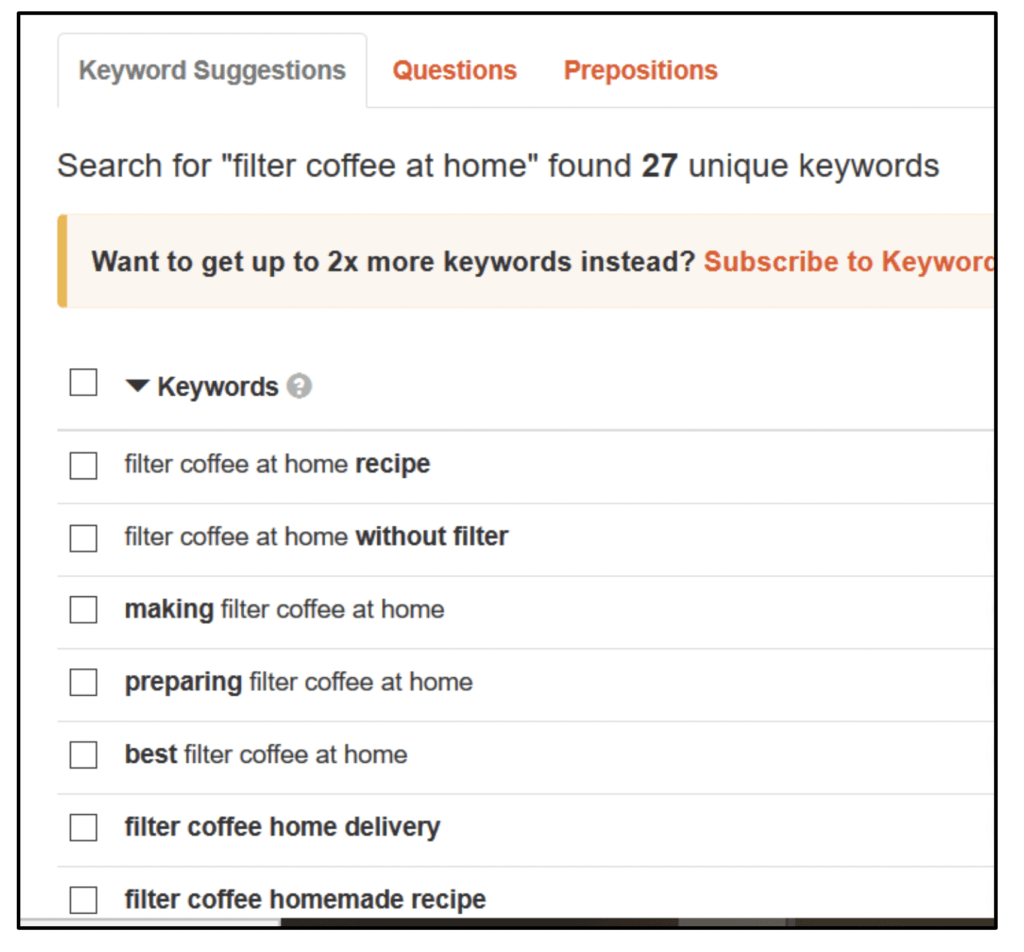
This should become the starting point of your keyword ideation and shortlisting process, based on subsequent traffic analysis. Here is a tutorial on how to find the best long-tail keywords related to your industry using a combination of tools.
Voice search keywords
ComScore predicts that 50% of web searches will be voice based, by 2020. At the core of most voice searches are ‘questions’ (Who, What, Where, When, Why, How).
Here are some tricks to find great voice search targeted keywords.
A. Use Google autocomplete by appending a question word (such as ‘how’) with your seed keyword
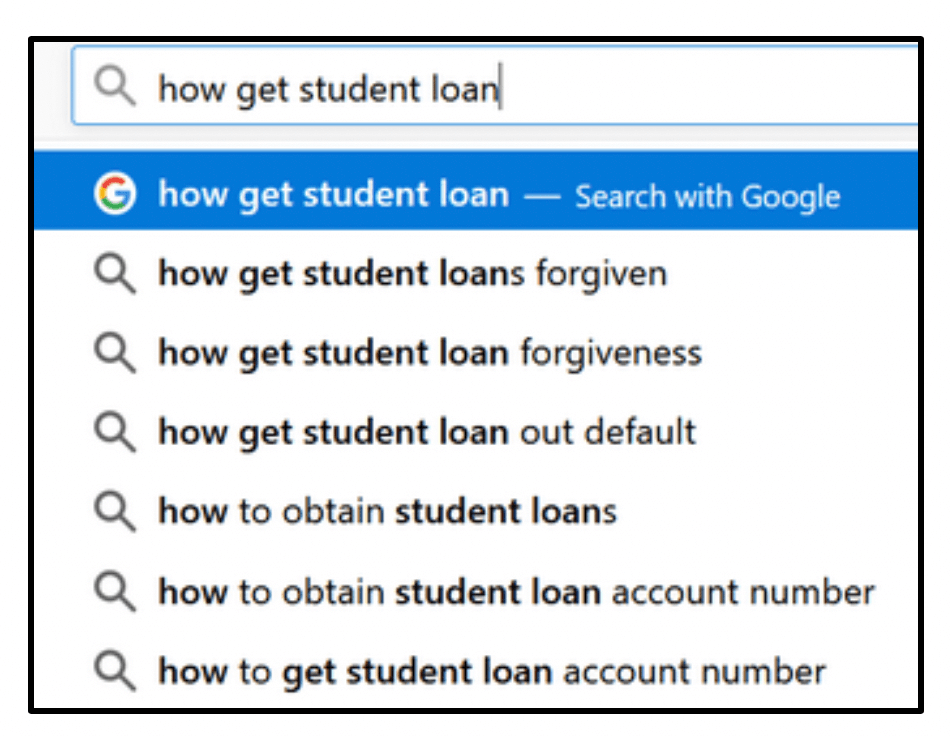
B. Use Answerthepublic.com, a free tool that helps you generate a long list of question based keywords.

Note: all question form keywords are invariably long-tail also!
Once you finalize your keywords, it’s time to optimize your site for voice SEO after carefully reviewing Google’s Search Speech guidelines.
5- Focus on mobile SEO
Google has given clear signals that it’s banking big on mobile searches. Deliver a great user experience to your mobile website visitors, and the website will rise on SERP rankings sooner than you think. Here are some action points:
Make your web pages’ content legible – small paragraphs and 14-point font are the way to go
- Choose a responsive web design (that’s a no brainer, really)
- Local search and mobile search go hand in hand, so local keywords research, business directory listings, and local SEO based backlinks also enhance mobile SERP visibility for your website
- Understand Google’s ‘micro moments’ concept to optimize your content such that it answers the queries that originate out of such moments for the end users.
- Use structured data markup to make your content more comprehensive and contextual for Google’s search bots
Parting Thoughts
Your startup needs all the online visibility it can get. Smart, deliberate, and persistent SEO will sail you through. Start off with these 5 methods shared in this guide.
